Hundreds take to the streets of Montreal to denounce Canadian banks investing in the DAPL
A group of approximately 100 people gathered in Victoria Square in downtown Montreal on Monday, Nov. 7 to stand in solidarity with the protestors in Standing Rock, an indigenous reservation in both North and South Dakota, against the Dakota Access Pipeline (DAPL), and to oppose Montreal banks TD, RBC and Scotiabank for providing investments to the DAPL.

The gathering, hosted by Climate Justice Montreal, began just after noon. A few First Nations performers initiated the meeting by singing and drumming in a small circle as protesters watched.
“The brutality of the police force out there is unforgivable,” said Kenneth Deer, secretary of the Mohawk Nation in Kahnawake and former publisher and editor of the Eastern Door newspaper in Kahnawake. “There is no need for peaceful protesters, who are just defending their water, defending their land and territory and defending their treaty rights, to be tear gassed, to have rubber bullets being fired at them or bean bag rounds.”
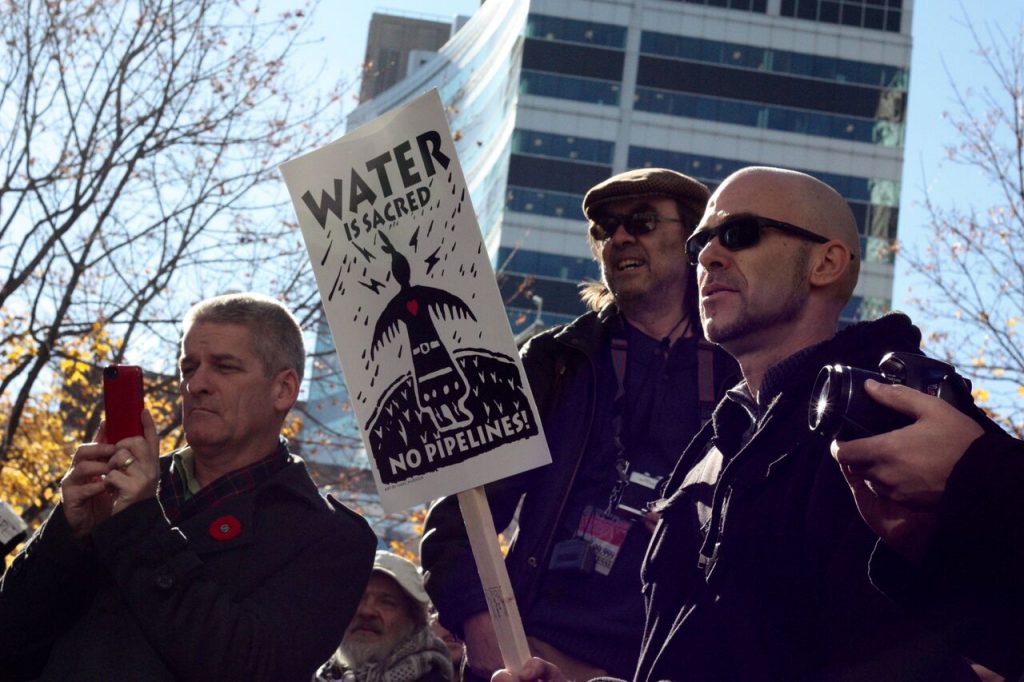
Deer said everyone has a right to peaceful protest. “All of you here are exercising your right to peaceful protest,” he said to the event participants.
“We’re going back to our days of cowboys and Indians in North Dakota,” he said, referring to the lack of human rights Standing Rock protesters are facing. “The police forces are just playing cowboys and shooting Indians.” Deer said, though the police are not currently using real bullets, they may want to. “They’re absolutely violating the rights of people in Standing Rock,” said Deer.
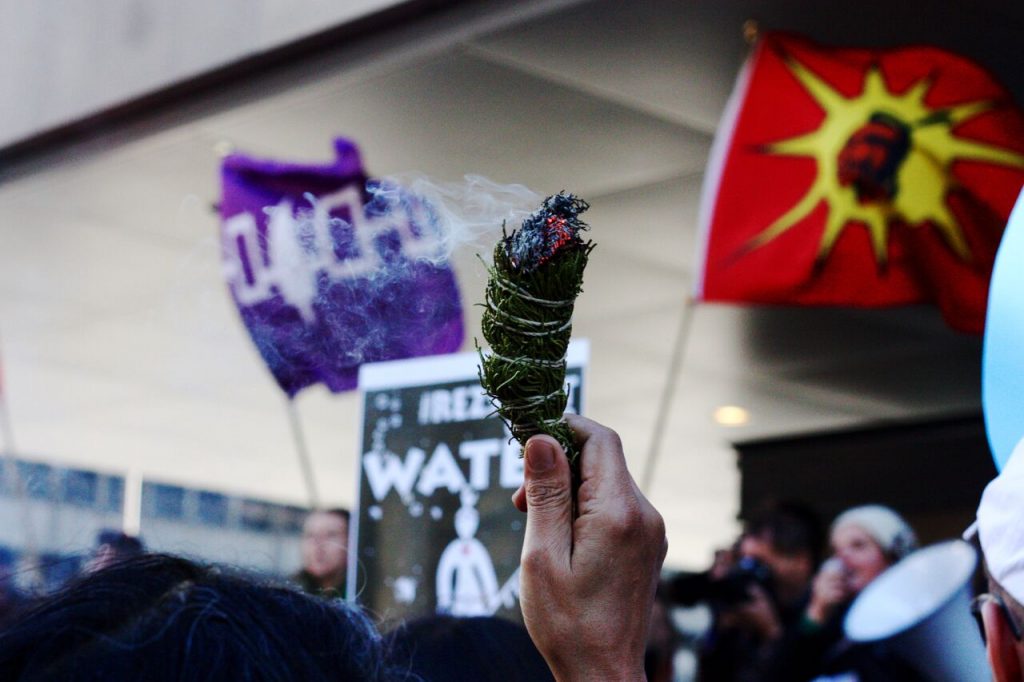
He said the United Nations sent down an observer from British Columbia named Ed John, a member of the United Nations Reform on Indigenous Issues, to review the condition of protesters in Standing Rock. According to Deer, John made a report detailing a lack of action taken by the United States government at the federal level towards the treatment of protesters in Standing Rock, which must be addressed. “The United States must be reminded of the ratification of the International Covenant on Civil and Political Rights, as well as the support from the UN declaration of rights of Indigenous peoples,” said Deer. The International Covenant on Civil and Political Rights is a treaty imposed by the UN in 1996, enforcing the equal rights to all humans for the order of freedom, justice and peace.
“If the U.S. does not act on these alarming actions, the rhetoric in the halls of the UN are just more empty and meaningless promises.” He said the United States is the leader of the free world, yet it oppresses the original peoples inside its borders.
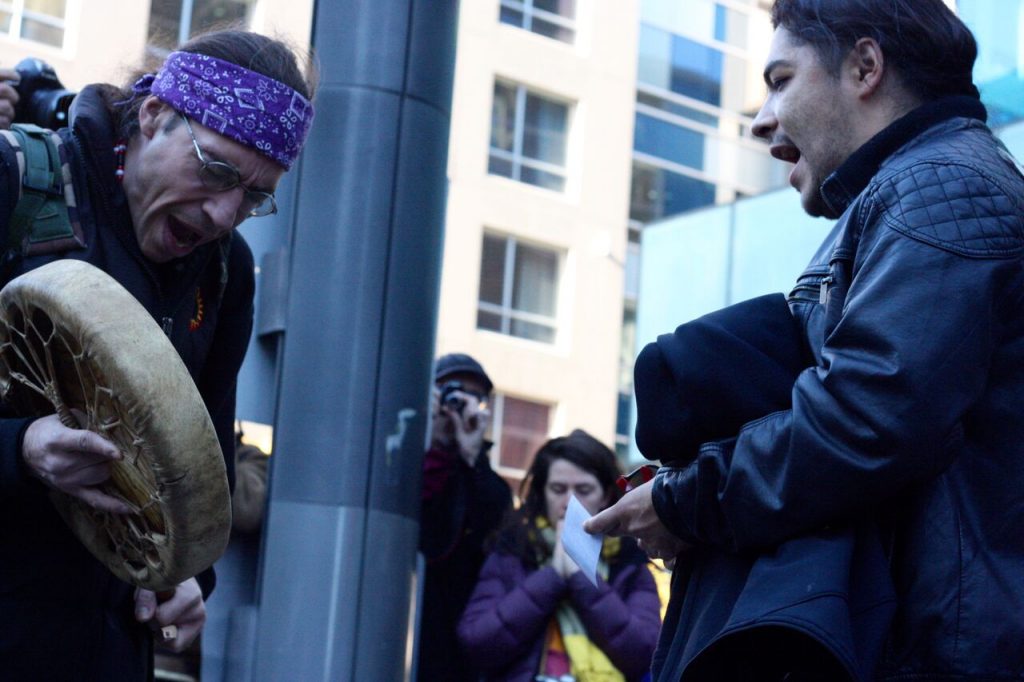
Deer said the pipeline proposal is in violation of treaties of the Sioux people, who currently obtain land known as The Standing Rock Sioux Reservation. This is one of the six reservations they currently have power over within both North and South Dakota.
Louellyn White, a Mohawk from Akwesasne and an associate professor of First Peoples Studies at Concordia University, said the situation in Standing Rock is really frustrating, devastating and emotional. “I’ve had friends at Standing Rock—friends who were there when the dogs came,” said White.
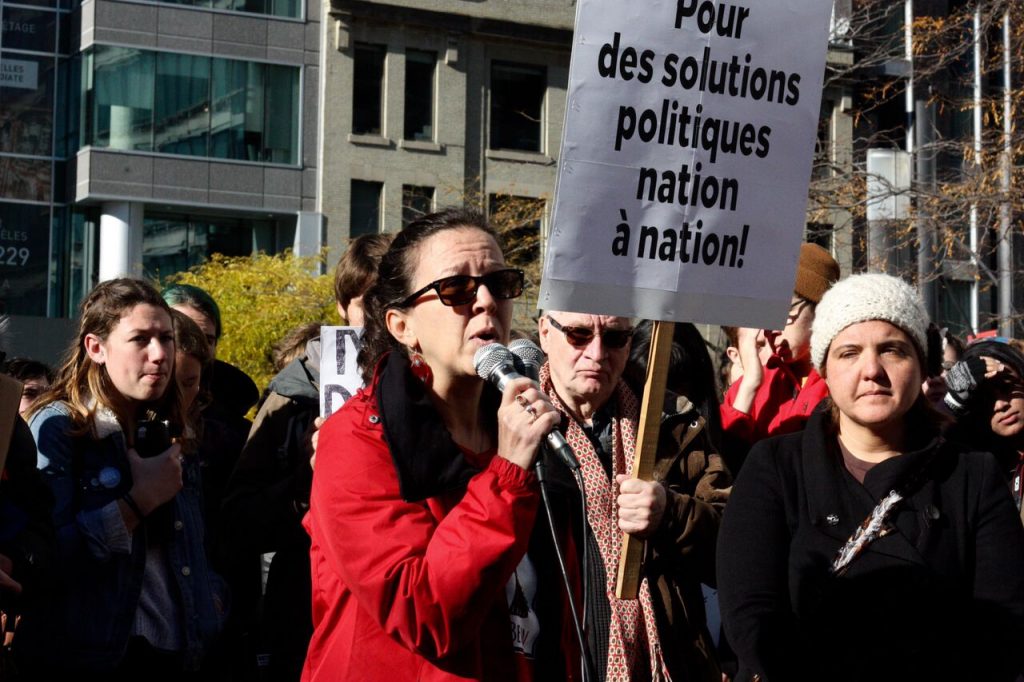
White said often, the issues lie with sovereignty of the Standing Rock Sioux Nation and the sovereignty of First Nations peoples. “That sovereign status has been ignored by centuries from government, from individuals, from states,” said White. She said there has also been a lack of nation-to-nation consultation regarding the Dakota Access Pipeline.
White said the power over their land was challenged by the Fort Larry Treaty of 1851, which set boundaries for the Great Sioux Nation, as settlers took some of their land. She said this treaty has repeatedly been broken and the land has since greatly diminished. “The provisions of that treaty said, ‘in exchange for use of your land, we will protect you from white settlers and we will provide annuities—education, food,’” said White. “None of that happened.That land was further and further diminished.”
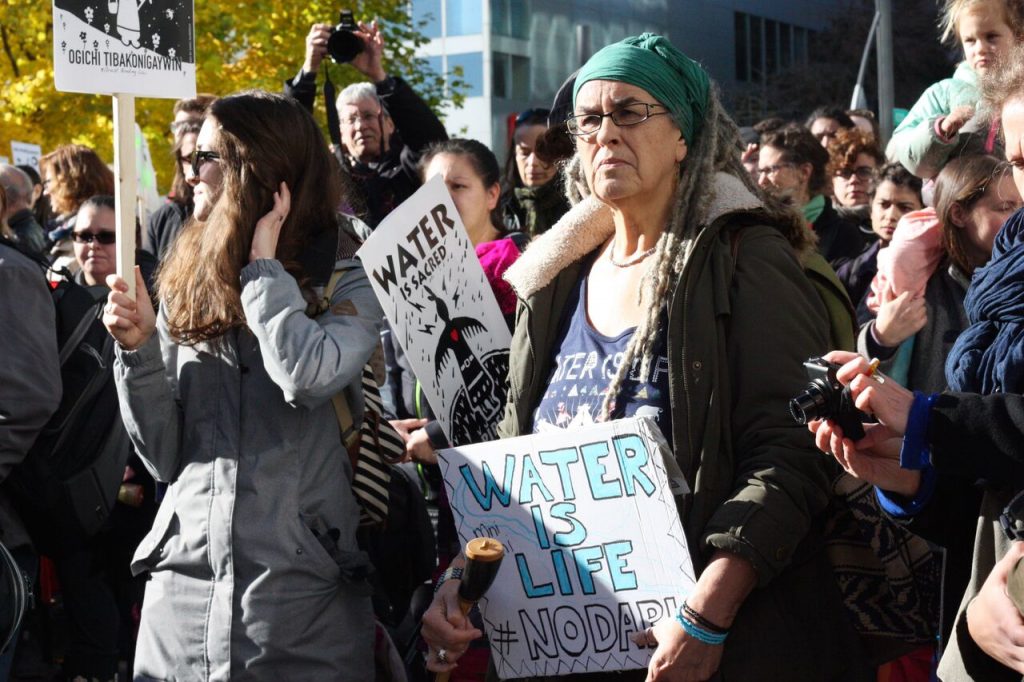
“What people are protecting today is that unceded territory—they never willingly relinquished their rights to that land,” said White. She said the people of Standing Rock are also standing to protect the burial grounds of the Sioux People.
“None of this is new to Indigenous peoples who have been fighting for centuries against outright genocide, colonialism at the hands of those who want to marginalize and oppress, and those who want to wipe us off the face of the Earth in the name of progress, capitalism, greed,” said White.
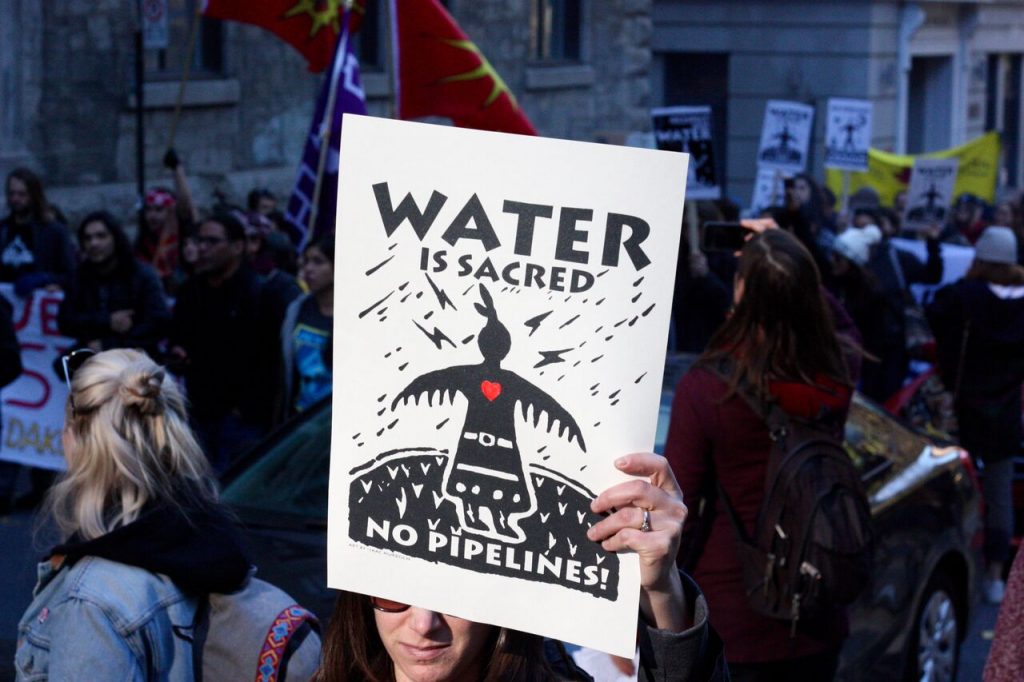
“But we are still here, and we are here because of the Indigenous laws and the knowledge we have that instruct us on how to live in harmony with the earth,” White said. “Those instructions acknowledge that we are connected to all living things.” She said this view goes far beyond the typical Hollywood portrayal of Indigenous peoples.
“It’s about oil, but it’s also not respecting treaty rights,” said Tama Sandor, a participant of the Montreal protest. “It’s so amazing that there’s enough momentum and feeling of empowerment at this time that they’re resisting,” she said. There are much similar things happening in our province, she said, considering the proposal of the Energy East Pipeline which will run through Montreal.
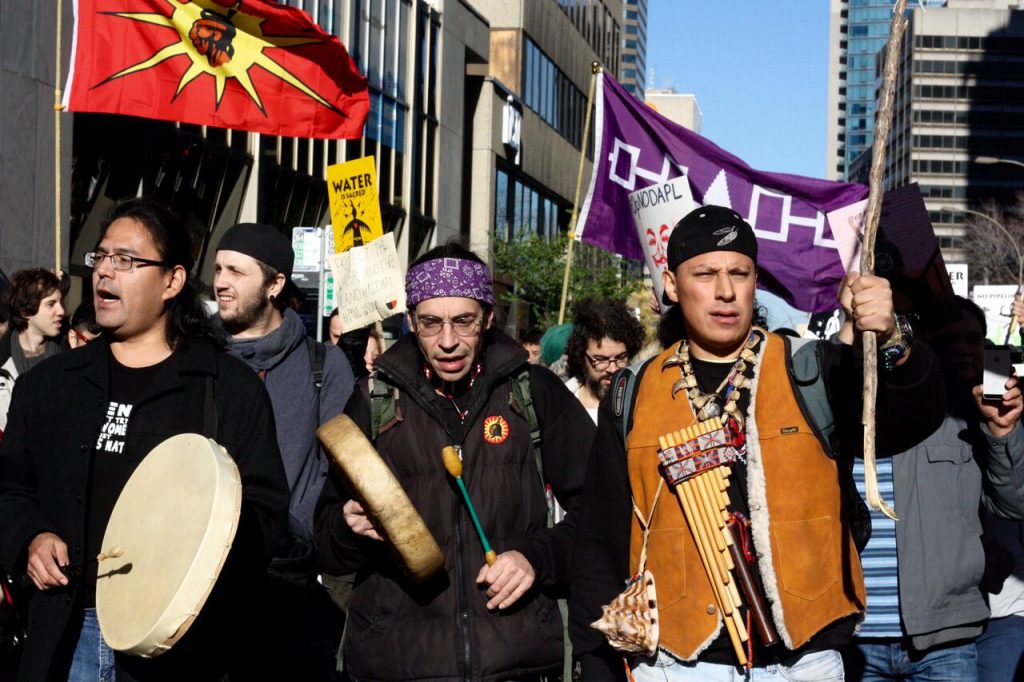
As the march began, the gathered crowd was much larger than it was when the event first started. A crowd of almost 300 people followed the assembly, lead by Indigenous people, some of whom were drumming, singing, burning sage and holding a sign saying “We stand with Standing Rock.”
“We stand, we stand, we stand for Standing Rock,” protesters chanted as they marched from Victoria Square to the intersection of René Lévesque and Robert-Bourassa Boulevard, where TD, RBC and Scotiabank branches are located. These three Canadian banks have given investments to Enbridge towards the DAPL.
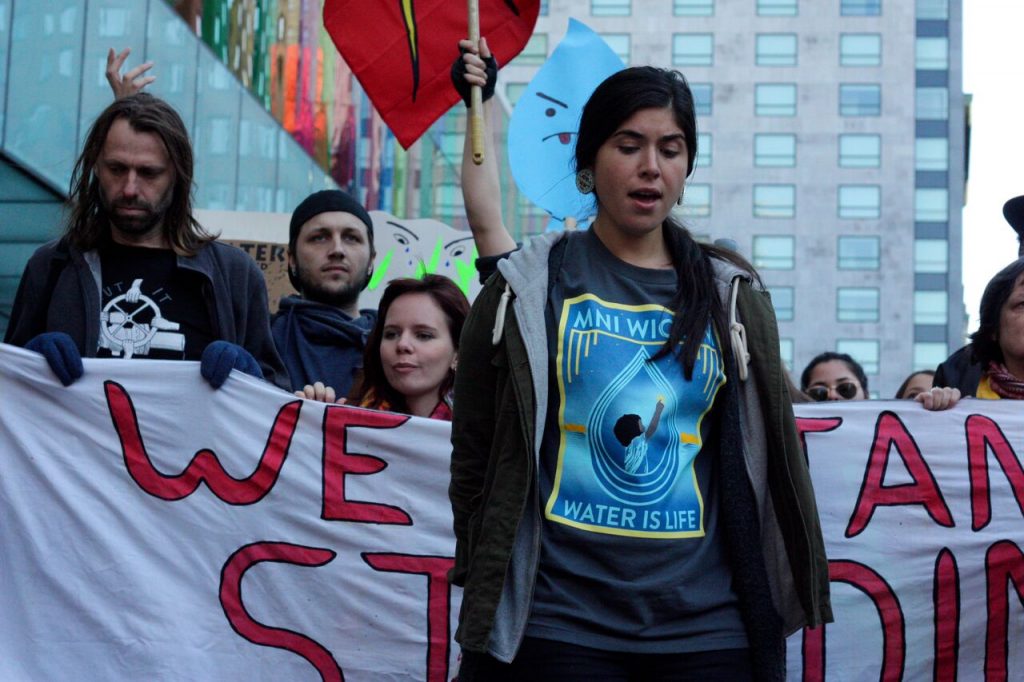
The event concluded in front of RBC, as participants dispersed into either of three banks they had an account with, to close their accounts until the bank removed their investments towards the DAPL.
Protesters also gathered to oppose the fact Canadian banks are investing in the pipeline. “Banks should not be funding human rights violations,” said Deer.
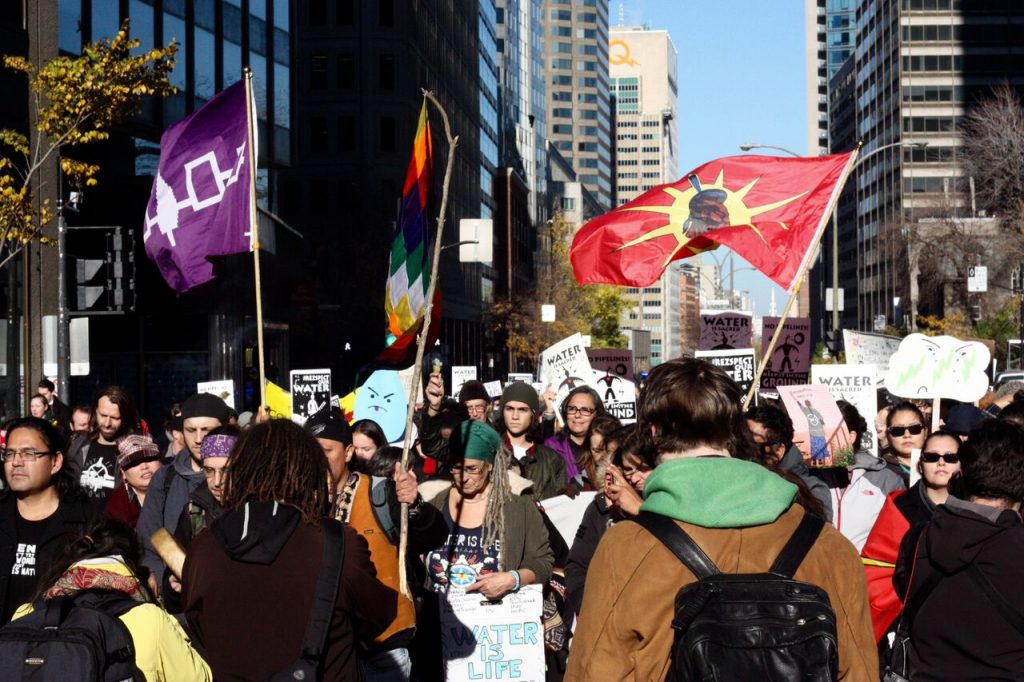
Cathy Inouye, a speaker at the event, said RBC has invested $341 million towards the DAPL, while TD invested $365 into the pipelines.
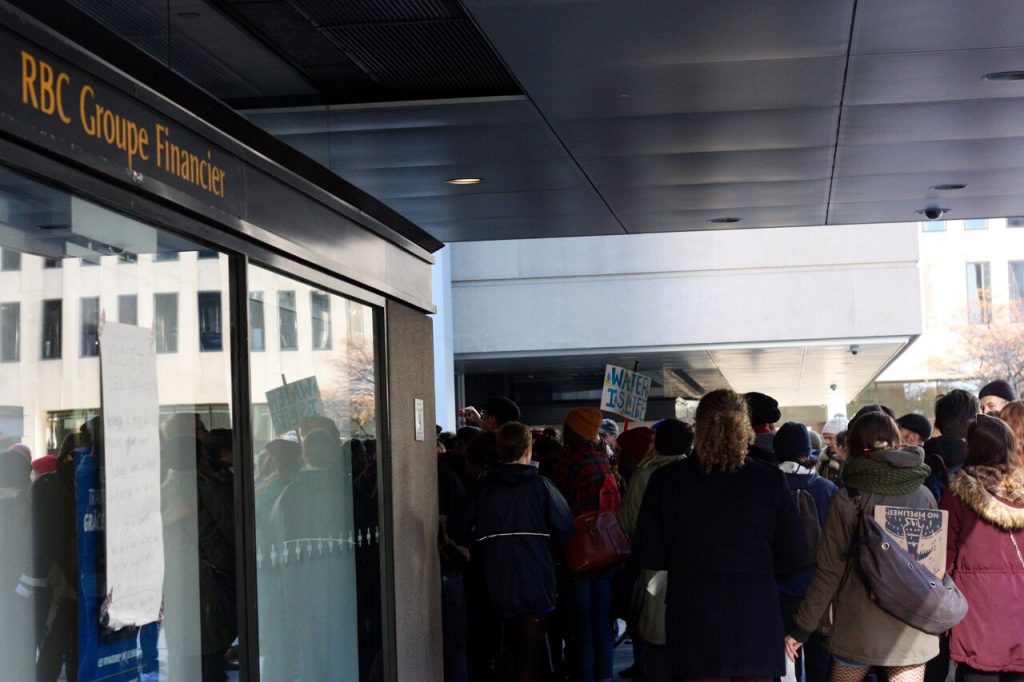
Climate Justice Montreal handed out forms at the protest and shared a copy on the event’s Facebook page that people can present to their bank manager or teller in order to withdraw from their bank invested in the DAPL. The form outlines the issues concerning the building of the DAPL—describing the lack of human rights protesters are facing, how it infringes sacred indigenous land and the environmental implications the pipelines will cause. Forms are available online through Climate Justice Montreal.
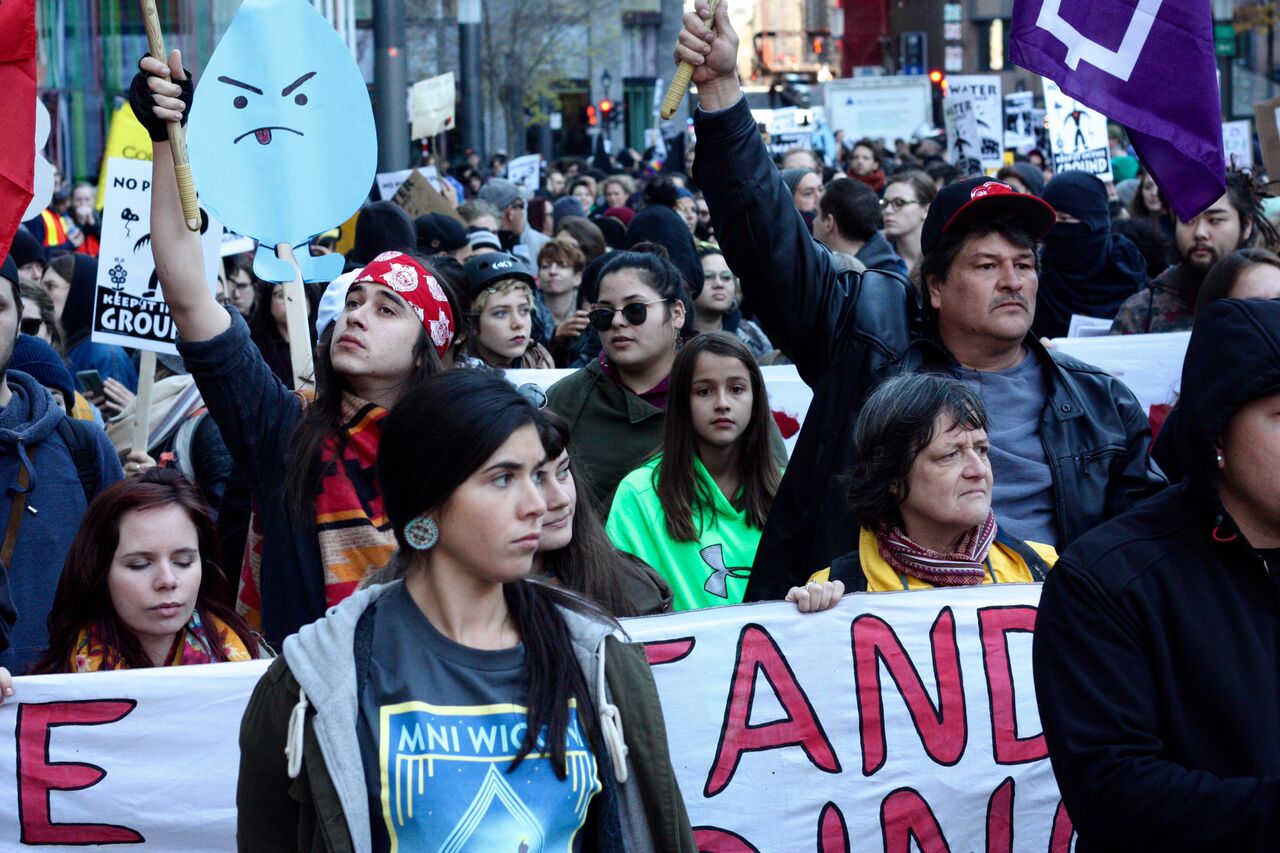




While activists in N Dakota burn vehicles and piles of tires on a bridge over a tributary of their water supply to protest supposed threats to said water, other activists in a city dumping raw sewage into the St Lawrence come out in support of them. Couldn’t make that up.